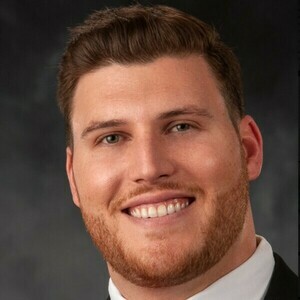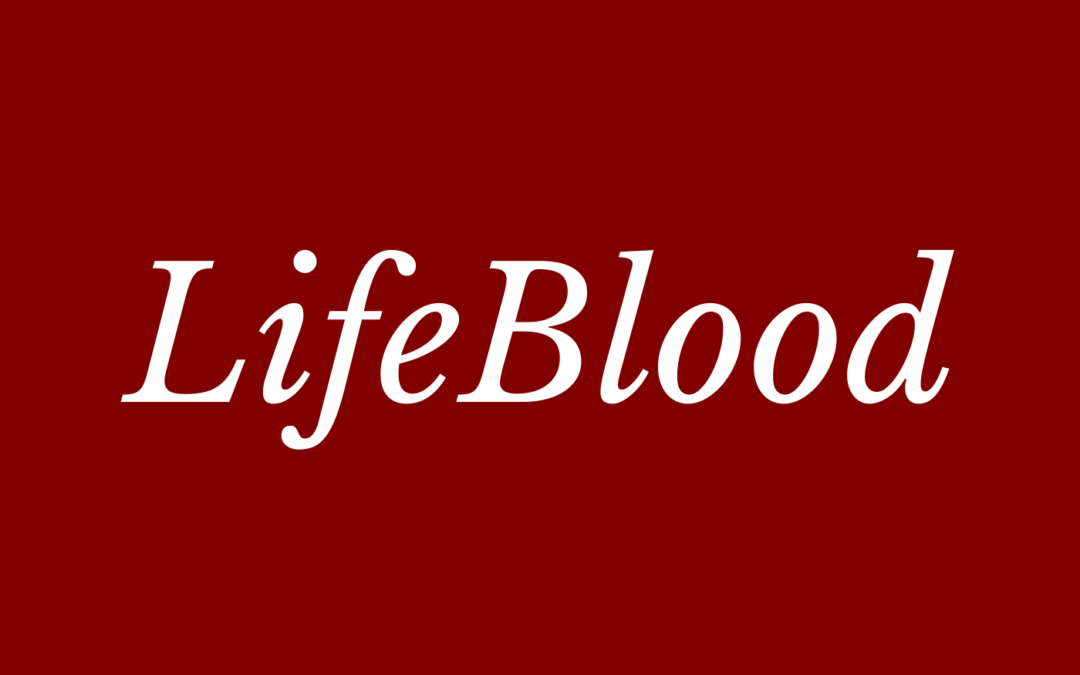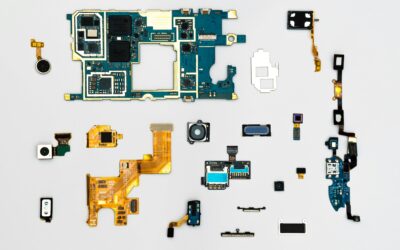Financial Certainty with Ty Morgan
Adversity can lead to a desire for financial certainty and personal growth. Ty Morgan shares his personal experience and how he found financial certainty that he now shares with others!
Listen to us On
About the Episode
LifeBlood: We talked about finding financial certainty, how we often don’t think about making positive change until something bad happens, and how adversity can inspire positive growth with Ty Morgan, Director of Silent Guardian Angels, and the Founder of Infinite Planning, Inc.
Listen to learn why you should never give up, no matter how bad things seem!
For the Difference Making Tip, scan ahead to 14:45!
You can learn more about Ty at Infiniteplanning.org and LinkedIn.
Thanks, as always for listening! If you got some value and enjoyed the show, please leave us a review wherever you listen and subscribe as well.
You can learn more about us at MoneyAlignmentAcademy.com, Twitter, LinkedIn, Instagram, Pinterest, YouTube and Facebook or you’d like to be a guest on the show, contact George at Contact@GeorgeGrombacher.com.

George Grombacher
Lifeblood Host

Ty Morgan
Guest
Episode Transcript
Come on. Welcome to life blood. This is George G. And the time is right welcome. Today’s guest is strong and powerful time organ tie. Are you ready to do this?
Ty Morgan 0:19
Yes, sir. Let’s do it.
george grombacher 0:20
Let’s let’s let’s go. Ty is the director of silent guardian angels Inc. He is the founder of infinite planning Inc. He is a financial freedom advocate. excited to have you on. Tell us a little about your personal life some more about your work and why you do what you do.
Ty Morgan 0:38
Yeah, absolutely. George, thank you so much for having me on. It’s a pleasure to be here. And I guess I can tell you a little bit about my background and backstory. I was raised in a small town in Alabama called Nana fly Alabama with about 94 people there. I was raised on the 80 acre family farm. And so I kind of learned a little bit about physical work there. And I knew that wasn’t wasn’t my style. So I wanted to go off to college and get my degrees and kind of be able to educate people. So I went to play football at the University of West Alabama, I got a scholarship there. And after finishing up school, I went to the University of Alabama, I got my master’s in personal finance. Then after that, I got a good corporate job with all the relocated down to Tampa, Florida. We’ve been here for three years. And it’s great living in sunny Florida. And we have two children. And we’re here today because, you know, God has blessed us. And we’ve been been through some adverse times. And we can share that a little bit later on. And that’s kind of why I do what I do in my work. That’s a little bit about my background.
george grombacher 1:38
Nice. So a town of 94 people on an 80 acre farm. What what what was on the farm?
Ty Morgan 1:46
Yeah, so we just had, it was my grandfather’s farm, I was passed down to him, he ran cattle. So he did about 8040 to 80 heads of cattle. And then you know, we simultaneously raised pigs chickens, just kind of self service farm. And then he had about three to four gardens at any given time that he would just grow and be able to feed the family and stuff they’re going to Walmart You know, he was Walmart. So yeah, the cool stuff growing up, for sure. For sure.
george grombacher 2:13
When when, when you’re and I apologize for asking a bunch of questions about this. Is it a function of You know what, we’re already doing this? Why not throw some pigs in? Why not throw some chickens in there?
Ty Morgan 2:24
Yeah, I guess I never really asked him his thought process. It was just a self sufficient man. I mean, anything that was on his farm, he pretty much built my hand himself. So I think, you know, if you want to chicken for dinner, I mean, I guess he was gonna raise the chickens if he wanted port for dinner, you know, why not? So it gave him options. So yeah. So just run to the grocery store. You had it on the farm?
george grombacher 2:45
options options are good. So Well, I know that that that the situation that caused you to start your nonprofit is a pretty scary and awful event. So if you don’t mind sharing that, I’d love to hear that story.
Ty Morgan 3:00
Yeah, absolutely. So infinite planning was found that actually due to my grandfather, too, he was actually at the age of 64, still working for money outside of his farm to be able to take my grandma on vacation. He was injured while cutting down trees. And so you know, I had my Master’s in personal finance, I was working a corporate job. And I said, You know what, if I can prevent other families from you know, financial illiteracy incidents, I’ll do that. So I found the infinite planning and began working on that. And we got that up and running and became a financial coach using infinite planning. And as I was going through and creating that business, we got pregnant with our second child bracing. And racing at about three or four months in utero guide, I got diagnosed with bilateral renal agenesis. And what that means, and common language because I didn’t know what it means at first was complete absence of kidneys and the bladder. And why that’s important is because in utero, the kidneys produce urine, which is the amniotic fluid in utero, and babies swallow the amniotic fluid, and that develops their lungs and helps everything develop. So because they didn’t have kidneys, he wasn’t able to produce the amniotic fluid. And that is 0% survival rate. And so before 2020, there was no possibility for these children to live. But there’s actually a new trial created in 2020, called the RAF trial. And that was that a couple locations throughout the US and we had to go through a lot of testing, but we were able to get accepted. And we moved to Baltimore, Maryland, Johns Hopkins, and my wife underwent 25 m u infusions. And what that means is they got a needle about seven or eight inches long. They built it with saline solution, and they did you know, they sterilize everything. But then they went in and they put the needle into the uterus sac. And they filled the amniotic fluid integrations uterus sec, and that’s what was his amnio fluid. So that’s what he swallowed and made his lungs and then after 25 of those he was born on January 20. First 2021. And there’s a lot of medical needs for children without kidneys and bladder. And so the main thing is the peritoneal dialysis catheter, and that’s placed in his abdomen and the x as his kidneys. And in his case, the catheter had a ton of problems, and we ended up having have 14 surgeries related to that catheter not functioning properly. So that’s why we started signing guardian angels is to focus on developing a new pair of female dialysis catheter for infants, so that the more children that are born with conditions with their kidneys, they won’t go through as many problems as our sling bracing did. So that’s the main reason we we’ve done that. And while we’re focused on that, because we want to help feed your families that are going through impossible circumstances.
george grombacher 5:41
And how is he doing now?
Ty Morgan 5:44
He is it was in the Nicki for 225 days, a little guy got to come. He got to come home on my wife’s birthday. So he’s been home for a little over a month now. And he’s rocking and rolling and doing doing really well.
george grombacher 5:57
Oh, I’m glad to hear that man. I’ve got two kids. And I just can’t even imagine going through that experience. So
Ty Morgan 6:04
Oh, yeah, thank you. Yeah, he’s a blessing to be here. So we have learned to be nephrologist and nurses all in the same as while being parents. So right. So definitely an experience.
george grombacher 6:13
Yeah, yeah. Lots of new learnings going on. Oh, awesome. I appreciate you sharing that story. So a couple of obviously, really, really tough, traumatic experiences with your grandfather getting disabled, and then your experience with bracing. Try to transition this to making financial decisions. What Why? Why do you think it is that that we, as human beings aren’t very good at proactively making good financial decisions? It takes like a hitting rock bottom or a bad event to actually spring us into sort of waking us up?
Ty Morgan 6:48
Yeah, I think a lot of that comes into if nothing is wrong, I mean, everything’s good. I mean, I know that from my perspective, until my grandfather here that a corporate job doing really well. And I was like, you know, everything’s good. What do I have to worry about? I mean, you know, I have the I have the money coming in. So there’s no need to think about it until a dramatic event happens. They’re just gonna open dries. I mean, I wish I don’t wish that on anyone. But this proactive I think it takes more work. And that’s a lot of the problem. Which, which a lot of is not actual work is it could be, you know, maybe we look at it the wrong way. If we do it, right. It’s fun if you do financial literacy, right?
george grombacher 7:27
Yeah. And really, really anything from make myself better standpoint, you have an athletic background, you look like you’re still a pretty athletic guy. There’s something about you that motivates you to do the things you need to from a nutrition and an exercise standpoint. Right?
Ty Morgan 7:43
Right. Yeah, absolutely. So I’m just kind of naturally always been motivated to try to be good and, and take care of myself, because I know, I’m not taking care of myself, you know, I can’t function at a high level. So that’s just something that’s been made. And that’s personal. I’m not a nutritionist or exercise coach by any means. But I do try to take care of myself.
george grombacher 8:00
Yeah, no, I appreciate that. And that that’s like that, that’s kind of an important thing right there. Right? Like, you don’t need to be an expert in these things. You just need to have a little bit of guidance and understand, okay, here’s the things I need to be doing on a consistent basis, and then maybe a little bit of support to get going. And then to keep it going. And when it comes to you helping people with their finances, it’s probably not dissimilar, right? Is it a function of helping people to sort of cut through a lot of that noise? And finally make decisions about things and get started? How do you think about that?
Ty Morgan 8:38
Yeah, so that’s a good point. And a lot of it comes down to, are people willing to open their mind and hear things differently? And, and it’s all also there’s no, like, when I when I go to help someone, there’s no like, you know, cookie cutter, XYZ steps need to take, there are steps in different areas of someone’s life you need to take, but most of it’s kind of like, okay, where do you want to be in life and why and then helping them get to those steps and making sure they’re on the right track that has certainty involved in the plan. So that’s kind of a big thing for people is certainty, as I know, you know, with my job, I thought there was a lot of certainty in that, you know, as a corporate position, but then the condition with my son comes along and the corporation wasn’t able to transfer me. So if I had not started working on my businesses beforehand, I wouldn’t be able to find work. And I will just always tell people, be aware. You know, where are you? How are you there and find someone you know, nutritionist or next life coach that I work with, to make sure that I’m on track. So it’s always good to have a coach in
george grombacher 9:54
your life. Yeah, for sure. So this, this, this notion of certainty, I totally agree. I think that That’s something that we all definitely want. How, how how, how do we find that with our finances?
Ty Morgan 10:09
Yeah, so one thing that I stumbled upon, after I got my master’s and personal finance that whole CFP course. And that’s why Master’s is in. And I just didn’t like the idea of retirement plans and all that. So I looked into outside of Wall Street means and I stumbled across the infinite banking concept. And this is one of the main pillars that I teach them. And the infinite banking concept is with a specially designed whole life insurance policy. And the reason I say that certain is because it has a column that is guaranteed and those illustrations, and that’s designed by actuaries. And if you look at actuarial math, 99.9% of the time, they’re going to be spot on. And if a policy is designed, right, throughout the course of its life, for every dollar you put in, you’re gonna get $1.10 back to us down the road. And also, because it’s a life insurance policy, there’s the added benefit of death benefit. Throughout throughout your life, you’re protected, and you’re building your own banking systems with that policy, and every dollar you put in certain is guaranteed to be in that policy. So that’s that’s a big thing with certainly in finance for me, personally.
george grombacher 11:18
Yeah, I appreciate that. I don’t think I’ve ever heard anybody put it quite that way. For every dollar you put in, you get $1.10 back.
Ty Morgan 11:25
Yeah, so that’s, that’s what a specially designed policy. It’s not you can’t go to like State Farm, and to say, hey, I want to, I want to do a whole life insurance policy is not the way it works has to be someone that’s trained and knows how to design them. Because there’s some intricate details that need to be set up there on those policies.
george grombacher 11:45
Got it. But that is the expectation, for lack of a better term or the certainty of it that if I put in, you know, $100, I’ll get $110. Back at some point down the road. Yep. Yes, sir.
Ty Morgan 11:57
That’s exactly right.
george grombacher 11:59
And how do you think about time horizon with with with a policy like that?
Ty Morgan 12:04
Yeah, so a lot of it, obviously, it’s life insurance, there’s going to be Your help is going to be involved. But we say we’re typically looking at these between year and seven and 10 is really when it picks up in the efficiency. So the first six to seven years, we call the capitalization period, it’s like for anyone, if you want to go start a business you’re going to have to put capital in are not going to be able to expect use that capital for a couple years until it is returning your investment ROI on it. So about year seven to 10 is when you really see the efficiency pick up in those policies, like for my policies at year 10, I think I put in, you know, I’m just gonna spit ball a number here, I think it’s about around 20,000. And there’ll be, you know, 40,000 available to us after putting that 20,000 just example off of my personal policies currently. Sure.
george grombacher 12:49
So it’s just a function of based on somebody’s personal situation, their age, and their health and insurability and all that stuff.
Ty Morgan 12:57
Yes, sir. Exactly. Right. So there’s some outside variables. But and with the, with the certainty and infinite banking concept, anyone can do it, it’s just a matter of switching your thinking, and wanting to do it and taking accountability for your money. So that’s a big switch I had to make Personally, I used to just depend on the corporation, put it into my corporate 401k. And just hoped my money was going to go up and be there for me one day, and then going through bracing circumstances and trying to use a mark, we went through our emergency funds and use different things were like, okay, like, I really don’t have control of this money. And I need to find a way to get control the money. So
george grombacher 13:35
yeah, control and access and all those things. And kind of to your point at the top talking about how things are pretty good right now, right? Why would I be thinking about something bad happening, and then something bad happens, and it causes you to sort of rethink things and question, why we do certain things. So I appreciate that. When people are having a hard time with talk about the importance of changing our thinking, is it a function of or a matter of that this is just something that they’ve not thought about or heard of before?
Ty Morgan 14:07
Yeah, that could be it. So I know, for me, I had never heard of it until I got introduced to it. And then it actually took about six months of action between reading, studying and doing different things to open my mind to it because I was really closed off to it at first. So the first thing is, you know, getting it out into people’s hands. And the second thing, it does require action on your parts. You have to be willing to take the action to be able to learn it and open your mind as well. So that’s what I would say to that point. Thanks.
george grombacher 14:39
I appreciate that. Well, time the people are ready for your difference making tip. What do you have for them?
Ty Morgan 14:45
Yeah, absolutely. So I would say the difference making tip I’d recommend is to not give up on anything and especially going through our circumstances is to never give up and you can push through anything if you just put your mind to it.
george grombacher 15:00
I think that is great stuff that definitely gets Come on. Come on. Don’t give up. You can make it through just about anything in your case. That’s I mean, I can’t imagine doing anything that was probably more difficult. So amen on that man.
Ty Morgan 15:15
Yes, sir. We appreciate it.
george grombacher 15:17
I appreciate you coming on. Where can people learn more about you? How can they engage with you?
Ty Morgan 15:21
Yeah, absolutely. So we have two different websites for financial coaching is infinite planning.org. You can go to schedule a call. There are also we have our nonprofit silent guardian angels calm. You know, if someone that needs assistance or you yourself need assistance or impossible circumstance, the team and I are ready and available to serve you. So just let us know.
george grombacher 15:41
Excellent. Well, if you enjoyed this as much as I did, so tell your appreciation and share today’s show with a friend who also appreciates good ideas go to infinite planning.org and silent guardian angels calm
Ty Morgan 15:54
Is that right? Yes, sir. That’s correct. Perfect. Well, thanks
george grombacher 15:58
again. Ty. Thank you so much, George. Their pleasure. And until next time, keep fighting the good fight. It’s we’re all in this together.
Transcribed by https://otter.ai
More Episodes
Beyond the Bank Balance: Cultivating a Soulful Relationship with Money
You don’t need to be a Wall Street shark or a personal finance guru to develop a healthyrelationship with money. In fact, most of us start with little more than a jumble of beliefsand habits passed down from our families. But if you’ve ever found yourself stressed at...
How Using AI Can Help You Gain Clarity Into Your Financial Future
In today's fast-paced, data-driven world, achieving financial clarity can feel like an overwhelming task. With numerous financial decisions to make—from budgeting and investing to retirement planning and debt management—it's easy to feel lost in the complexity of it...
How AI Can Help Improve Your Personal Finances
1. Smarter Budgeting and Expense Tracking AI-powered tools like Mint, You Need a Budget (YNAB), and PocketGuard can automatically categorize your expenses, track your spending in real time, and even alert you when you’re about to exceed your budget. These tools...
Trust and Confidentiality When Using AI as Your Financial Coach: Safeguarding Your Sensitive Data
In the digital age, artificial intelligence (AI) has revolutionized many aspects of our lives, including personal finance. AI-powered financial tools have become a go-to resource for budgeting, investing, debt management, and even retirement planning. But as more...
How AI Can Be Your Personal Financial Coach: Unlocking the Future of Financial Success
In today’s fast-paced world, managing your finances can feel overwhelming. With so many options for saving, investing, and budgeting, it can be hard to know where to start or how to stay on track. Fortunately, advances in technology—specifically Artificial...
How Technology and AI Are Benefiting Investors and Consumers in Securing Their Personal Financial Futures
In recent years, the rise of technology and Artificial Intelligence (AI) has profoundly transformed the financial landscape. These advancements have empowered investors and consumers to make more informed, efficient, and personalized decisions about their financial...
10 Things New Parents Should Be Thinking About Regarding Their Personal Finances
Becoming a parent is one of the most joyful and transformative experiences in life. However, it also brings new financial responsibilities and challenges. If you’re a new parent or expecting, it’s crucial to plan ahead to ensure your family’s financial security. Here...
10 Things Newlyweds Should Be Thinking About Regarding Their Personal Finances
Marriage marks a new chapter filled with excitement and partnership. While love may be the foundation, financial harmony is key to building a stable and happy life together. To set yourselves up for success, here are 10 essential financial topics that every newlywed...
Financial Tips for New Parents: Building Stability and Security for Your Growing Family
Becoming a parent is one of life’s most rewarding experiences, but it also brings significant financial challenges. From diapers to daycare, the costs add up quickly. Whether you’re a first-time parent or adding to your family, managing finances wisely is crucial for...
Join the show.
Interested in being on the show? Tell me a little bit more about you and what you’d like to talk about!














